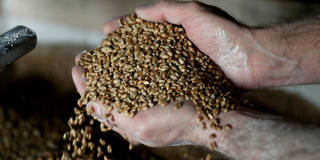How to Address Global Hunger
Regulating financial activity in global commodities markets, while important, is not enough to stave off rising food insecurity. Policymakers must also take measures to help developing countries build up reserves of essential items and cope with price fluctuations, possibly through a publicly administered virtual reserve mechanism.

NEW DELHI – Among the multiple crises that have erupted around the world, the avoidable tragedy of growing hunger receives only fleeting mention. And any attention that it does attract is apparently not enough to prompt global policymakers to act.